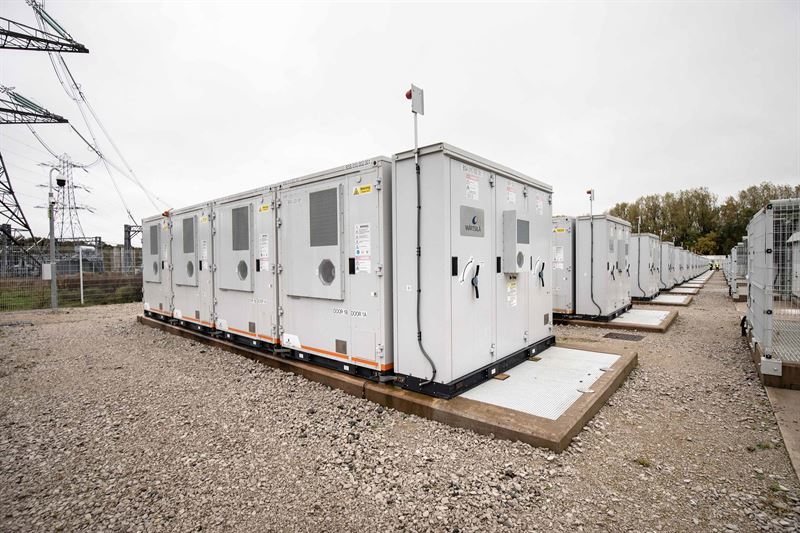
EDF Renewables UK has contracted Finnish technology group Wärtsilä for two battery energy storage system (BESS) projects.
The deal, announced yesterday, covers the 47.5MW/95MWh Indian Queens project in Cornwall and the 50MW/100MWh Bredbury project in Greater Manchester. Both are currently under construction, with Bredbury scheduled for commercial operation in late 2025 and Indian Queens during the first half of next year.
It means that Wärtsilä has now been contracted to deliver eight grid-scale battery projects for EDF in the UK totalling 404.5MW/709MWh, with the previous six already operational.
The portfolio includes two projects that went into operation relatively recently: the 50MW/100MWh Sundon asset in Bedfordshire, which went online in December last year, and Bramford, a 57MW/114MWh project in Suffolk, which became operational in April.
EDF Renewables UK placed its order for Sundon in 2022, and for Bramford in the first quarter of 2023.
Deal follows Wärtsilä’s close of strategic review
In its announcement of the deal, Wärtsilä did not reveal which iteration of its GridSolv Quantum containerised BESS solution will be deployed at the Indian Queens and Bredbury projects but said that as with all the company’s battery storage projects, they will be controlled and optimised by the company’s GEMS Digital Energy Management software platform.
Wärtsilä launched its newest iteration, Quantum 2, in March 2024. The company claimed it has a streamlined design to enable compact project layouts at high energy-density sites while conforming to the standard 20-foot container form factor.
The liquid-cooled system is designed for applications requiring 2-hour to 8-hour durations.
Its launch followed the late 2023 unveiling of Quantum High-Energy (Quantum HE), which the company said is designed to add energy density in increments. Quantum HE is getting its first field deployment at developer-investor Zenobē Energy’s 300MW/600MWh Kilmarnock South project in Scotland, announced in February 2024.
Wärtsilä initiated an 18-month-long strategic review of its energy storage division, Wärtsilä Energy Storage & Optimisation (ES&O), in October 2023 and had been considering “all options,” including divestment. However, it closed the review in March, and said it remained committed to the energy storage sector.
UK has 9GWh total of operational assets and 130GWh pipeline with planning consent
EDF Renewables UK’s portfolio of battery storage in the country surpassed 1GWh with the start of operations at its Bramford project.
The UK renewables arm of the French energy company opened a public consultation 14 May for its proposed 250MW Swansea North project in Wales, for which environmental and technical assessments are currently being undertaken.
According to figures from the ‘Battery Storage: UK Pipeline & Completed Assets Database’ report by our colleagues at Solar Media Market Research, there are now almost 130GWh of BESS projects with planning consent in the UK.
It’s important to note that not all of that pipeline will necessarily get built out, and some may face lengthy waits for grid connection.
As of April, there were 9GWh of assets in the UK’s operational BESS fleet. According to a Guest Blog for sister site Energy-Storage.news from Solar Media Market Research analyst Charlotte Gisbourne, coverage is spread very unevenly across the country.
More than 2GWh of cumulative installs are in the Southeast of England while the largest average size of project (52MWh) is found in Scotland.

